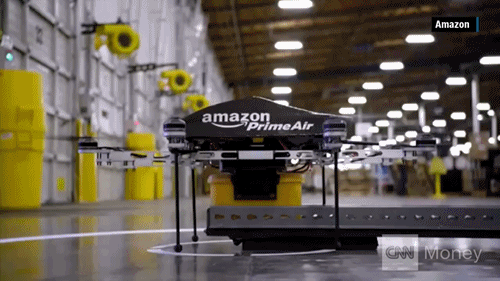Rose Jacobs of Newsweek has a story about the emergence of robotic factories in Europe (Industrie 4.0, as its called), not the first time that magazine has covered the rise of industrial machines. The article notes these plants aren’t yet devoid of human workers, but it’s tough to see how that isn’t just the result of a transition not yet completed. Manufacturers argue industrial automation is propelled by consumer demand for cheaper prices and greater convenience. In that sense, it’s not much different than the mechanics of Uber marginalizing drivers to appeal to riders. An excerpt:
You might expect a world built on sensors, software and machines to be devoid of humans. But in Amberg, the 10,000-square-metre shop floor is populated by 1,020 workers over three shifts. And their labour looks relatively physical: a young man lying on his back inches his way under an elegant blue-and-grey machine, as you would under a car needing repair; a woman nearby bends over a circuit board wielding tweezers. Yet other members of staff peer at screens, never touching the products rolling down glassed-in assembly lines.
“A digital future can frighten people,” says Günter Ziebell, production unit leader in Amberg. “But we complement automated tests with eye checks.” More to the point, this project has created demand for people with experience and creativity, who can improve the processes. So the management structure in Amberg has become very flat, allowing, for example, line workers to speak with the IT department directly rather than go through their bosses. Any employee can initiate a project that requires an investment of less than €10,000, and managers simply check every quarter that their teams are neither spending too much nor too little. Employees also earn bonuses when they suggest changes that are later implemented. The average employee earns an additional €1,000 per year this way, says Ziebell. He stresses the importance of schemes like this: “If a digital factory is being managed top-down, you wouldn’t get many advantages from it.”
But even if increasing automation hasn’t sapped jobs in Amberg, fast-growing efficiency means new plants might have been built to meet rising customer demand – and new positions to fill them – are now unnecessary. It is an issue that the Germans, at least, are attempting to address head-on, with plans under way to form a national-level working group for Industrie 4.0 that includes employee representatives as well as private businesses and industry bodies.
Dieter Wegener, Siemens’s coordinator for Industrie 4.0, argues that companies aren’t pushing these developments forward – consumers are. We want customised products, we want them now, and we want them made efficiently, whether to bring down prices or preserve natural resources. This isn’t possible without networked production processes. As Mr Wegener says, “This is coming from you and me.” He also argues that Germany is at least two years ahead of the industrial internet community in the US “but we appear as if we’re following the Americans. The Americans are better at marketing.”•
Tags: Dieter Wegener, Rose Jacobs



